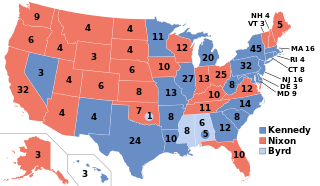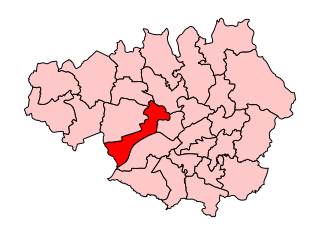| | |||||||||||||
| |||||||||||||
All 137 seats to the National Consultative Assembly | |||||||||||||
|---|---|---|---|---|---|---|---|---|---|---|---|---|---|
| |||||||||||||
 | |||||||||||||
The elections for the tenth Majlis were held in the spring of 1935. [1]
People of Greater Tunb were invited to vote in the elections as part of the Bandar Abbas constituency. [2]
| | |||||||||||||
| |||||||||||||
All 137 seats to the National Consultative Assembly | |||||||||||||
|---|---|---|---|---|---|---|---|---|---|---|---|---|---|
| |||||||||||||
 | |||||||||||||
The elections for the tenth Majlis were held in the spring of 1935. [1]
People of Greater Tunb were invited to vote in the elections as part of the Bandar Abbas constituency. [2]

The Baháʼí Faith is a monotheistic religion founded in the 19th century that teaches the essential worth of all religions and the unity of all people. Established by Baháʼu'lláh, it initially developed in Iran and parts of the Middle East, where it has faced ongoing persecution since its inception. The religion has 5-8 million adherents spread throughout most of the world's countries and territories.

Presidential elections were held in the United States on November 8, 1960. The Democratic ticket of Senator John F. Kennedy and his running mate, Senate Majority Leader Lyndon B. Johnson, narrowly defeated the Republican ticket of incumbent Vice President Richard Nixon and his running mate, U.N. Ambassador Henry Cabot Lodge Jr. This was the first election in which 50 states participated, marking the first participation of Alaska and Hawaii, and the last in which the District of Columbia did not. This made it the only presidential election in which the threshold for victory was 269 electoral votes. It was also the first election in which an incumbent president—in this case, Dwight D. Eisenhower—was ineligible to run for a third term because of the term limits established by the 22nd Amendment.

The history of Armenia covers the topics related to the history of the Republic of Armenia, as well as the Armenian people, the Armenian language, and the regions of Eurasia historically and geographically considered Armenian.

The Iranian revolution, also known as the 1979 revolution, or the Islamic revolution of 1979 was a series of events that culminated in the overthrow of the Pahlavi dynasty in 1979. The revolution led to the replacement of the Imperial State of Iran by the present-day Islamic Republic of Iran, as the monarchical government of Mohammad Reza Pahlavi was superseded by the theocratic Ayatollah Ruhollah Khomeini, a religious cleric who had headed one of the rebel factions. The ousting of Pahlavi, the last Shah of Iran, formally marked the end of Iran's historical monarchy.

The Tahirid dynasty was an Arabized Sunni Muslim dynasty of Persian dehqan origin that ruled as governors of Khorasan from 821 to 873 as well as serving as military and security commanders in Abbasid Baghdad until 891. The dynasty was founded by Tahir ibn Husayn, a leading general in the service of the Abbasid caliph al-Ma'mun. For his support of al-Ma'mun in the Fourth Fitna, he was granted the governance of Khorasan.

The Qajar dynasty was an Iranian royal dynasty founded by Mohammad Khan of the Qoyunlu clan of the Turkoman Qajar tribe.

The 1935 New Zealand general election was a nationwide vote to determine the shape of the New Zealand Parliament's 25th term. It resulted in the Labour Party's first electoral victory, with Michael Joseph Savage becoming the first Labour Prime Minister after defeating the governing coalition, consisting of the United Party and the Reform Party, in a landslide.

The 1938 New Zealand general election was a nationwide vote to determine the shape of the New Zealand Parliament's 26th term. It resulted in the governing Labour Party being re-elected in a landslide, winning nearly 56% of the vote despite not gaining any more seats. Having replaced the United-Reform coalition, the newly founded National Party also gained a certain amount of ground.

Eccles was a parliamentary constituency of the United Kingdom, centred on the town of Eccles in Greater Manchester, England. It returned one Member of Parliament (MP) to the House of Commons of the Parliament of the United Kingdom, elected by the first past the post system.
Presidential elections were held in Iran on 23 May 1997, which resulted in an unpredicted win for the reformist candidate Mohammad Khatami. The election was notable not only for the lopsided majority of the winner - 70% - but for the high turnout. 80% of those eligible to vote did so, compared to 50% in the previous presidential election.

Artaxias I was the founder of the Artaxiad dynasty of Armenia, ruling from 189 BC to 160 BC. Artaxias was a member of a branch of the Orontid dynasty, the earlier ruling dynasty of Armenia. He expanded his kingdom on all sides, consolidating the territory of Greater Armenia. He enacted a number of administrative reforms to order his expanded realm. He also founded a new capital in the central valley of the Araxes River called Artaxata (Artashat), which quickly grew into a major urban and commercial center. He was succeeded by his son Artavasdes I.

Historically, Iran was commonly referred to as "Persia" in the Western world. Likewise, the modern-day ethnonym "Persian" was typically used as a demonym for all Iranian nationals, regardless of whether or not they were ethnic Persians. This terminology prevailed until 1935, when, during an international gathering for Nowruz, the Iranian king Reza Shah Pahlavi officially requested that foreign delegates begin using the endonym "Iran" in formal correspondence. Subsequently, "Iran" and "Iranian" were standardized as the terms referring to the country and its citizens, respectively. Later, in 1959, Pahlavi's son Mohammad Reza Pahlavi announced that it was appropriate to use both "Persia" and "Iran" in formal correspondence. However, the issue is still debated among Iranians. A variety of scholars from the Middle Ages, such as the Iranian polymath Al-Biruni, also used terms like "Xuniras" to refer to Iran: "which is the center of the world, [...] and it is the one wherein we are, and the kings called it the Iranian realm."

Greater Iran or Greater Persia, also called the Iranosphere or the Persosphere, is an expression that denotes a wide socio-cultural region comprising parts of West Asia, the Caucasus, Central Asia, South Asia, and East Asia —all of which have been affected, to some degree, by the Iranian peoples and the Iranian languages.
The 1937 Canadian banknote series is the second series of banknotes of the Canadian dollar issued by the Bank of Canada. The banknotes were issued into circulation on 19 July 1937, at which time the Bank of Canada began gradually removing banknotes from the 1935 series from circulation. The $1000 banknote was issued several years later, as it was primarily used by chartered banks, which had a sufficient supply of the 1935 Series $1000 banknote.

A referendum on merging the posts of Chancellor and President was held in Nazi Germany on 19 August 1934, seventeen days after the death of President Paul von Hindenburg. The German leadership sought to gain approval for Adolf Hitler's assumption of supreme power. The referendum was associated with widespread intimidation of voters and significant electoral fraud.

Parliamentary elections were held in Iran on 13 March 1980, with a second round on 9 May. They were the first elections to the Majlis since the overthrow of the Shah, and were contested to a considerable degree on a party basis.

Constitutional Convention elections were held in Iran on 3 and 4 August 1979. The result was a victory for the Islamic Republican Party. There were 10,784,932 votes cast in the elections, marking 51.71% turnout. Of all members elected, 68% were clerics.

The 1935 Wellington City mayoral election was part of the New Zealand local elections held that same year. In 1935, elections were held for the Mayor of Wellington plus other local government positions including fifteen city councillors. The polling was conducted using the standard first-past-the-post electoral method.

Reza Shah issued a royal decree on 15 August 1932 for the ninth parliamentary elections to be held, and the elections started on the following day. The elections are considered fraudulent and "systematically controlled by the royal court".

The 1935 Kentucky gubernatorial election was held on November 5, 1935. Democratic nominee Happy Chandler defeated Republican nominee King Swope with 54.45% of the vote.